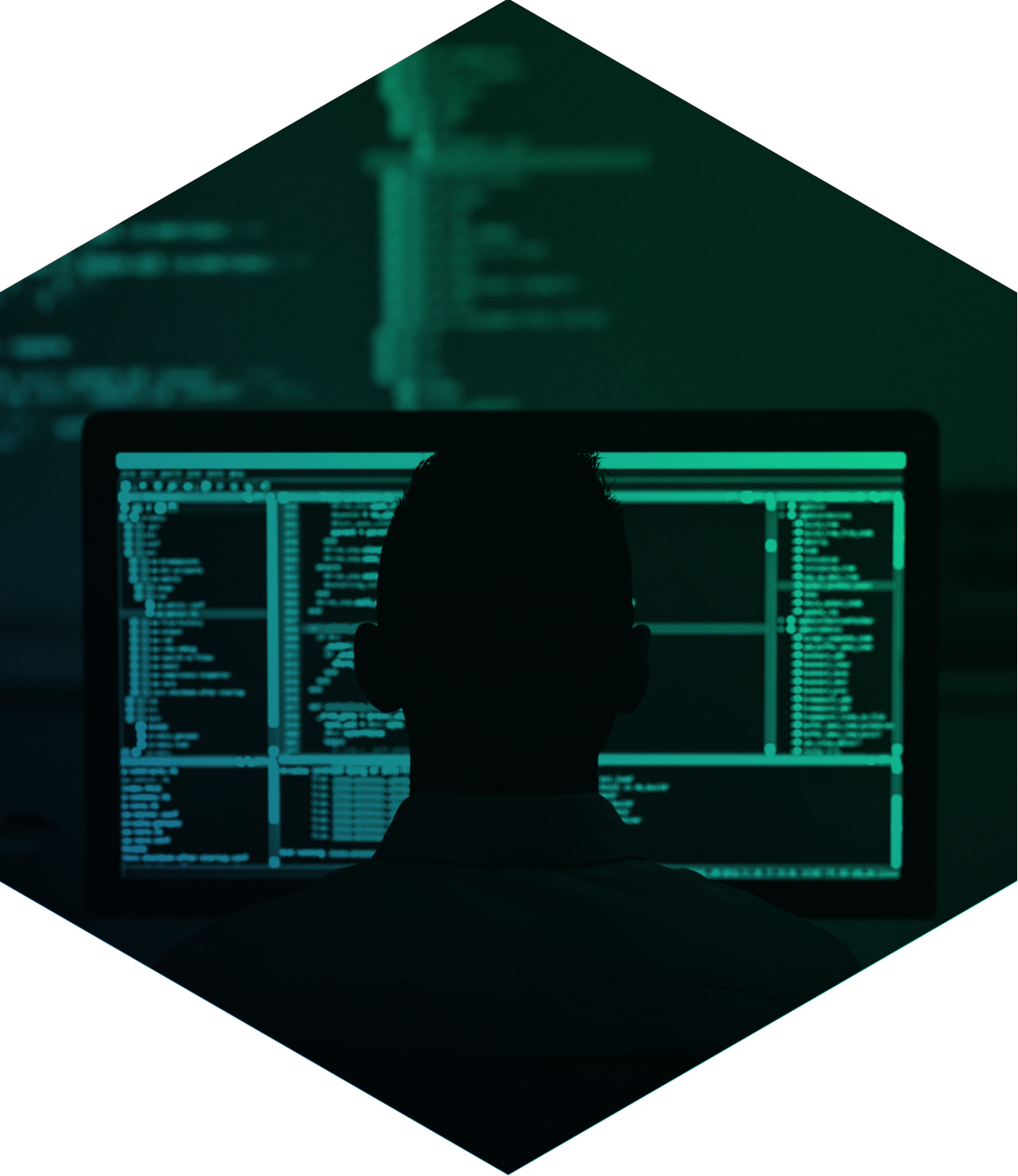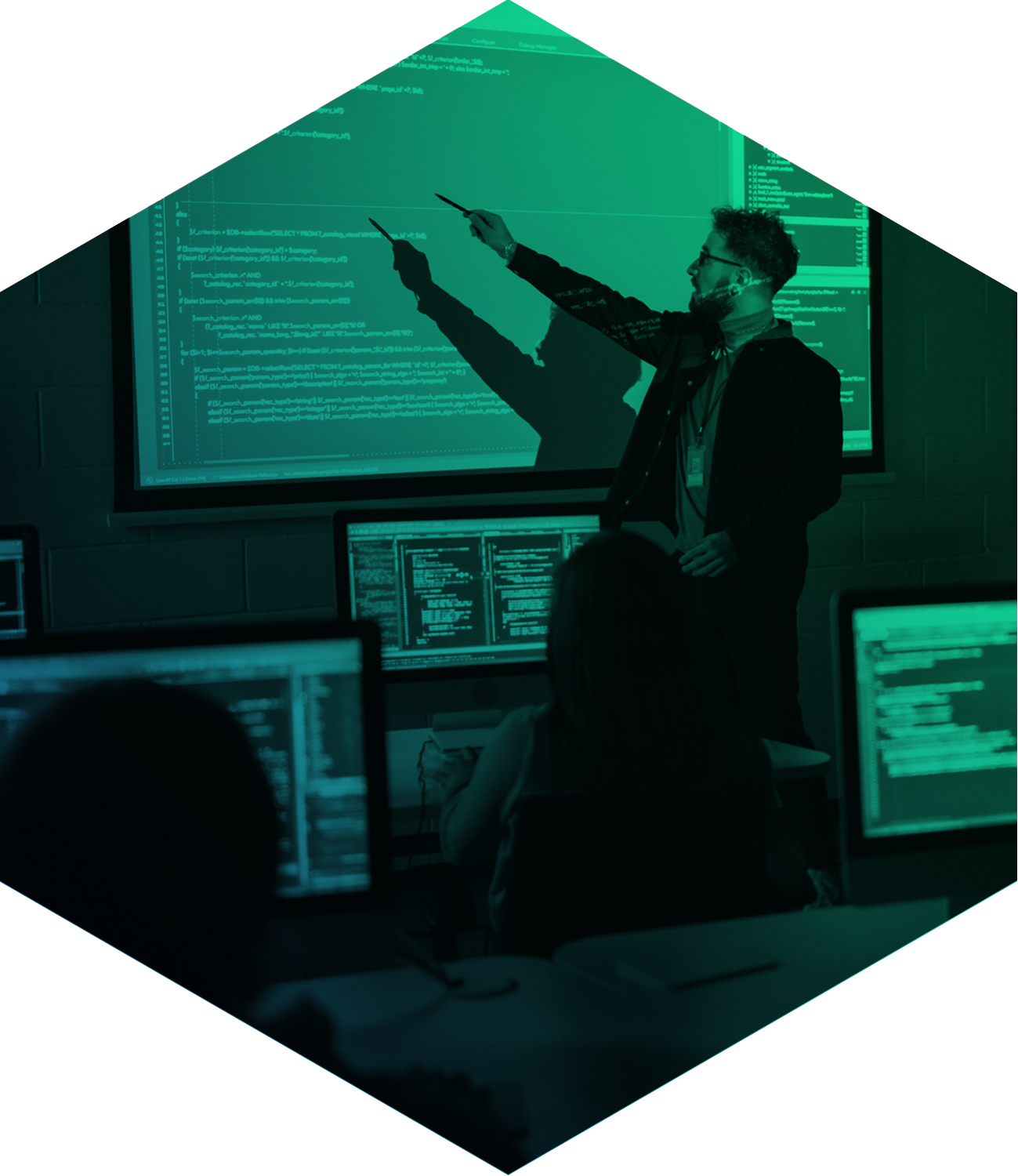Lewisville School of Science & Technology offers a specialized program in computer science and cybersecurity. Students explore coding, data security, and network defense, guided by experienced educators. Join us on this transformative journey to become tech-savvy problem-solvers and cybersecurity experts for the digital age.
Computer Science / Cybersecurity Pathway
Unlock the World of Tech,
Coding Your Future



Our Computer Science / Cybersecurity Pathway
Work Based Learning
Join TSA, Obtain industry-based certification & Cybersecurity Internships
Earn your Certification
Certified Entry-Level Python Programmer (PCEP); Oracle Certified Associate, Java SE Programmer; CompTIA Security + Certification; CompTIA A+ Certification
- Fundamentals of Computer Science
- Computer Science 1
- Computer Science A
- Cybersecurity Capstone or Internship
Course 1: Fundamentals of Computer Science course introduces students to coding fundamentals through an approachable block-based programming language where they will have early success in creating usable apps. As students sharpen their computational thinking skills they will transition to programming environments that reinforce coding fundamentals by displaying block programming and text-based programming side-by-side. Students will learn the power of text-based programming as they are introduced to the Python programming language. In addition, students will be introduced to IP networks, a critical building block for careers in IT and Cybersecurity. Finally, students will learn about professional opportunities in computer science and how computing can be an integral part of all careers today.
Cybersecurity gives students a broad exposure to the many aspects of digital and information security while encouraging socially responsible choices and ethical behavior. It inspires algorithmic thinking, computational thinking, and especially, “outside-the-box” thinking. Students explore the many educational and career paths available to cybersecurity experts, as well as other careers that comprise the field of information security.

Course 2: Computer Science 1 introduces students develop the in-demand computer science skills critical to thrive in any of today’s and tomorrow’s careers. The course promotes computational thinking and coding fundamentals and introduces computational tools that foster creativity. It aims to build students’ awareness of the tremendous demand for computer scientists and those who have computational thinking skills, and engages students to consider issues raised by the impact of computing on society.
Each unit also focuses on one or more computer science-specific career paths (software programming, AI, IT and cybersecurity). Computer Science Principles provides students with a broad exposure to the many aspects of computer science while encouraging creativity, socially responsible choices, and ethical behavior. It inspires algorithmic and computational thinking, helping students see themselves in a career path they might not have initially chosen.
Each unit also focuses on one or more computer science-specific career paths.

Course 3 or 4: Computer Science A (CSA) students develop the in-demand computer science skills critical to thrive in any of today’s and tomorrow’s careers. The course promotes computational thinking and Java coding fundamentals and introduces computational tools that foster creativity. It aims to build students’ awareness of the tremendous demand for computer scientists and those who have computational thinking skills, and engages students to consider issues raised by the impact of computing on society. Each unit also focuses on one or more computer science-specific career paths.
Fundamental topics in this course include designing and developing solutions that use control structures, data structures, and object-oriented programming using the Java programming language, analyzing potential solutions, and the ethical and social implications of computing systems.
The end result of this course is to enable the student to test for CompTIA+ industry certification and to test for College Board AP Computer Science (worth 3 college credits).

Course 3 or 4: Capstone for the Cybersecurity Pathway is designed to give students a broad exposure to the many aspects of digital and information security, while encouraging socially responsible choices and ethical behavior. It inspires algorithmic thinking, computational thinking, and especially, “outside-the-box” thinking. Students explore the many educational and career paths available to cybersecurity experts, as well as other careers that comprise the field of information security. Students are eligible to participate in the NASA HUNCH program where they will have the opportunity to apply their computer science knowledge on a “Moon to Mars” project.

